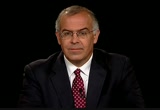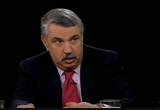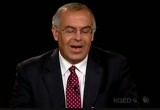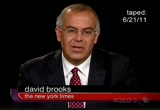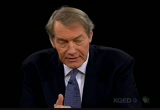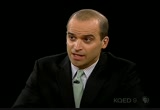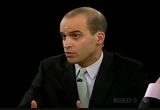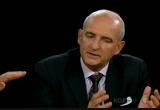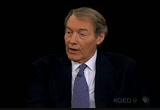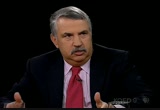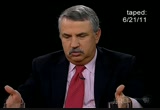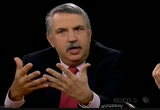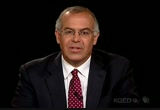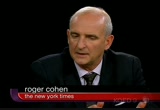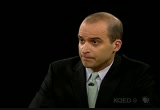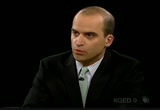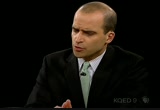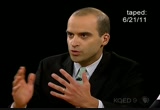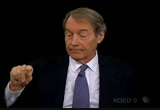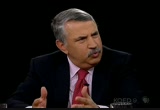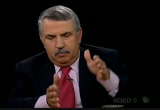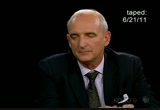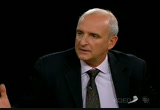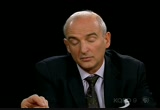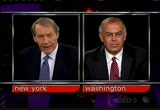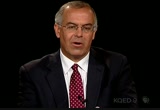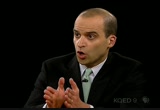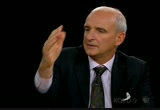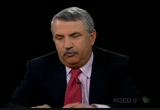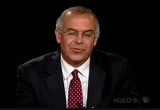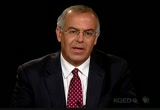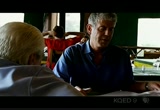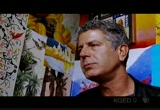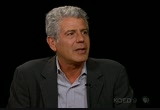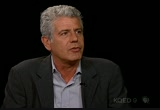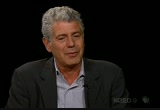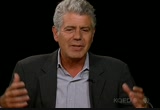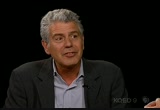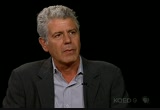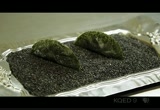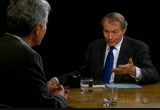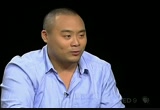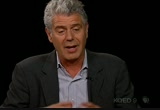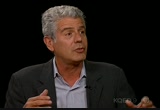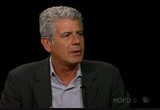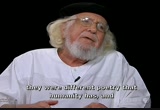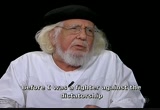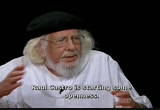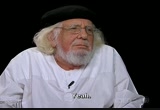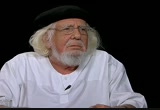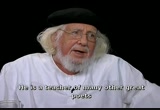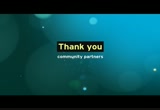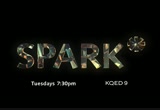tv Charlie Rose PBS July 9, 2011 12:00am-1:00am PDT
12:00 am
>> funding for charlie rose was provide by the following: every story needs a hero we can all root for. who beats the odds and comes out on top. but this isn't just a hollywood storyline. it's happening every day, all across america. every time a storefront opens. or the midnight oil is burned. or when someone chases a dream, not just a dollar. they are small business owners. so if you wanna root for a real hero, support small business. shop small. additional funding provided by these funders:
12:01 am
captioning sponsed b se communications from our studios in new york city, this is charlie rose. >> rose: owednesday president obama will announce how many troo will bring home from afghanistan beginning next month. the announcement follows months of debate in the white house, it comes with increasing concern in the war andure role in the country. the administration fac a number of challenges at home. unemployment remains high at 9.1%. the housing market continues to suffer and the u.s. debt has surpassed 14 trillion dollars. all of this will pose a significant challenge for the president in the 2012 eltion. joining me now a group of comments from the new york time from washington david brooks, with me here in new
12:02 am
york, david leonhardt, roger cohen and tom friedman. they have all won too many awards to talk about. mi pleased to have all of them on this program today to talk about america. what's the challenge for us? because wherever i go around the world the thing they say is tt we want america to take care of their business at home first, so that they can lead the world and pla an important part as the rest of the world changes. >> well, charlie, i think the world does understan that america provides a certain degree ofglobal governance and global goods, public goods that stabilize the world and fuel the global economy. i mean to me we are the tent pole that holds up the world. if we buckle your kids won't just grow up in a different america, they will grow up in a different world. and that is what i think what is playing out here is so important. i think our challengright now is to do four things at once. i think we have to stimulate the economy a little more because clearly we're rolling back, there are signs we are rollinback into recession. i think we have to at the same time put down long-term plan to address in
12:03 am
a simpsonowles kind of way a fundamental fiscal issues. at the same time i think we need to raise revenue because we have to invest to renew, fresh and reinvigorate all the sources of our strength whether it's infrastructure, education, and government funded research. so actually have to do four things at once watch. does that mean? it means we need a hybrid politics. because those four things do not correspond to the platforms or agendas of either of our two parties right now. and i think that is the big challenge right now. how do we basically develop a political platform and a mandate to do those four things. >> i would add a couple things. to what tom said which i basically agree with. but first there is a cultural element here. it's not just a problem in washington, it's a pblem in the culture. a nation where people have distrust of authority, don't trust government, unwilling to accept sacrice, feel very threatened, want pore government than they are willing to pay for, and so there has to be a gigantic education campaign to go under that.
12:04 am
and then the second thing i would add, and tom talked about a hybrid politics, i uld say we'vead it. and we just have to rediscover it. and i go back perpeally to my hero alex aner hamilton who created this hrid politics it was not -- he got us out of the big government versus small government debat he stood for lited b energetic government to enhance social mobility. so people in the hamiltonian practise decision which include the wig party and the lincoln an republican party at the founding did things toive people the chance to rise and sueed. thland grant college aferkt, the railroad legislation, the homestead ago. so it's really reviving that tradition which really cuts against our current polarized tradition that it seems to me is the key. >> so how do you do that? >> do we need more of a republic? >> well, we need some of that. i personally think we're a little too democratic if we're going to make painful decisions. we have to understand what the founders did that we can't really trusturselves. we have to put barriers between our immediate needs and our long-term needs and we have to have a government that is structured around long-term needs but
12:05 am
essentially we need leadership. i'm truck again and again as you know, i'm an admirer of barack obama but the passivity, the lead from behind especially on some of these budget sues is us from tingt. and then we just need intelligent leadership. i just had coffee a couple minutes ago with rahm emanuel is now mayor of chicago. he'soing a lot of things all at once and structuring i think so far pretty intellently so he's cutting budgets which they need to do in chicago but also attracting jobsing lengthening the school day, and because he's rahm emanuel he can't sit ill, it's a frantic, frenetic effort of doing everything all at once so you see some cuts can, but you also see some growth opportunities. and it's that sort of energetic practical leadership one step at a time that i think is something we're missing on the national scale and just finally i would say i'm way more pessimistic than the markets are out o ability to deal with this in the near term but also in the far term. >> rose: but the -- >> the interesting thing about rahm emanuel do everything at one time, one of the criticisms of the
12:06 am
president is that he tried to do too much at the beginning and taking on health care as well as economic issues as well as unemployment and that therefore he might have been better focused on one thing which was the economy canned the jobs. >> the only thing i would say is tom mentioned those four things need to be done. i don't think you can do the pain without the gain just politically. so you got to do those things. somehow sequentially you got to mix them in together. >> what do we need, david? >> we need a lot. i think there is the short term stuff tom was talking about. i think we do need some more help with the economy can. >> a stimulus or -- >> yeah. >> action by the fed. >> that word as become a dirty word but i think more action by the fed to reduce long-term rates. they can't reduce short-term rates any further. one of the important things, can the fed do more k it not do more. someone without strongly believes the fed can do more is ben bernanke. he said so repeatedly. he said even when short-term interest re gets to zero the fed can do more. the fed is choosing not to do more now which i think is
12:07 am
a mistake. >> out of a fear of inflation or what. >> i think it is a combination of things. one i think there are real politicsnvold wi the fed. peter die pond a noble prize winning onomist withdrew his nomination because it became became clear he wasn't going to be confirmed. we have this skewed political spectrum on the fed which you have people who might be considered radical, they are fairly far on one side in terms of always worrying about inflation. they are always concerned inflation will take off whether it is extremely low, moderate or high. they're always worried about inflatn. we do not have a similar thing on what might be considered the left of fed spectrum. we in some ways don't even have much of a center left, sort of a center left. but peter dimon was certainly close torlt center of a fed spectrum than some of the people who this votes on the fed recently. so bernanke is in this tricky position where if he wants to remain a moderate f he wants to remain in the middle of the fed and keep the confidence of his colleagues, he has to drift, i think, fairly far to one side. and sometimes away from where the data would take him. >> so i do think the fed is part of it. i also think you could design a payroll tax cut
12:08 am
that goes only to businesses that hire which i think would have more bang for the buck than some of the broadscale stuff they have done. but that is just short term. i agree with what david and tom said aut the long-term stuff. >> rose: was the presint right to extend the bushax cuts? >> i don't think he had a choice politically in the end. i think the president and the democrats made a bad mistake in not take care of it when they had control of congress. but once they didn't get it done before the election, they really had no choice once you got december 2010. >> are you now living abroad ifondon. does it look any different th watching the david cameron government try to deal with bo austerity and some of these issues. >> the cameron government is dealing th it in a much more direct and aggressive way. and cuts are coming through now which are beginning to hit. and there is talk of something close to a general strike at the end of june. so it's difficult. what strikes me living in europe is that it's an interesting moment in the world because you've got these rising powers, china, india, brazil, but we don't -- >> but we don't -- what they
12:09 am
antarctica late, what we don't yet know is what they stand for. what is their big idea. what are these now powers going to bring to the world. so everybody is still lookinto america for the leadership and ashomas sa america is still the tent pole but europeans and everyone, i think, are asking can where is u.s. headed it cannot gone with these levels of deficits and debt. mething has to be done but the one thing president obama has not articulated is some broad vision for the united states to compete in the world. energy is one very obvious area tha tom writes a lot about. i was recently in copenhagen, in copenhagen they are now heeding the entire city this winter, last winter by burning their own gar badge. there are dramatic changes going on. why is green technolog being lead by scandinavia, by asia. and that vision is just lacking. >> let me open that up with everybody. the idea of obama leadership, i mean as did has said is
12:10 am
not acted boldly where he might have want h to act. >> my own sense is that you know, we're not supposed t say who we voted for as columnists of "the new york times" so don't tell anybody. but the reason i am suspected to have voted for barack obama. >> would you spot me ten when -- >> is, i voted for obama for one reason are. because i thought he could change the polls and not read the polls. i thought he was someone because of his oratorical skills and because of his unique background who would actually use the presidency to educate us in the way that all my colleagues have talked, to actually change the polls. and my biggest disappointment ii really see a guy reading the polls as closely as ever. roger referred to energy. let's look at the last year, charlie. you and i have talked about this before. climate change, those two words, climate change became a four letter word in american politics, under barack obama's watch. not only didrepublican -- it is against the law in the
12:11 am
republican party, romney made -- romney was just so courageoushe actually said he believes in science, oh my god. and rush limbaugh sd you're out of the party, pal, okay. that is courage now that will happen --. >> rose: he suggested that he thought that man has contributed to global warming. >> exactly. so what is so disturbng is that, that we don't, we're not having an adult conversation about what are the real problems. and so my frustration with obama really flows from that. this, as david referred to, it's kind of passive lead from behind. i mean the rorschach test. we run aroundthe table, barack obama, what comes to mind right now in the middle of this crisis. i should tell you t say blank sheet of paper for me. i have no real strong sense of how he defines the problems, where he wants to go, what his bottom line is. and so i really feel if you look at the last 15 years of
12:12 am
american politics, first we had george w bush take the reagan revolution to its logical extreme -- extreme and beyond with tax cutting. then obama came in and took the fdrevolution to the its logical extreme and beyond with health care. thank you very much, both of you have now completed the o ganda of you iconic leaders of the 20th century. will someone please build a bridge to the 21st. that's what i thought barack obama would do. and i have been disappointed that that hasn't happened. >> rose: but why hasn't he done it? what's the reaso is it simply reading the polls? is it simply by nature a cautious temperment? >> i'm really not sure. he's an interesti, colicated guy. i feel likehere are doo to rooms there i've never, you know, a lot of it --. >> rose: never hit opportunity to engage in a q&a with him. >> i think, what was to me thfundamental thing that is misng there is -- is sometimes i wonder if obama knows why he was elected. i think he was elected to donation building at home.
12:13 am
and that should have been the low start, the driving force. everything should have connected to that, economics, education, energy, health care, all for that goal. but i feelo ofn, charl, that he just wants to kind of make things okay. i don't want to be okay. i want to be great again. i want to have this country be great again. and i don't sense that coming from him. i sense that we're goi to do ing thises, we're going to make itkay. and that's what i am missing. >> i sometimes is have been thinking recently that as president he has shown he can can a really great senator. which is to say that -- his natul skills are for the deliberation, for the organizing of coalitions, but the getting out front part and the sort of active, determining and shaping history part, we haveseen some times but t lot. i'm mystified, one of the g thgs going here on the debt default is this biden commission. i was thinking lyndon johnson faced this incredibly complicated set of issues. can question imagine hi
12:14 am
appointing a humphrey commission, or appoting his vice psident. i mean what is -- what is more important right now that the rewriting of the social contract which i involved in the debt, involved in fing medicare, involv in doing some infrastructure, involved in the budget. that is the most central thing going on right now. and why is it the o biden commission y ask it the obama commission. ople in the white house will say once he gets involved it becomes superpolarizing and it all falls apart. i think that is a bit of a rationalization think is one they have used too much to put him back in the shadows. and i just wish i few whetr it company could dprs some sort of deep sense of caution that he doesn't want to put himself out there or for some other reason. i simply don't know. >> i think his parting position is cautious. it's bridge building. that is his upbringing, that's his early work experience. that's his starting position, his foundation. but then he has these spasmsing almost, of leadership, of
12:15 am
risk-taking. i mean taking out osa bin laden was a big risk and he went against the counsel of many of the people closest to him. he took a major risk on that that could have blown up big time. he's taken some risk in the middle east. he's really gone quite far inupporting e arab spring. on health care right at the end, we did see energetic leadership but then he seems to just fal back into this kind of passivity that troublesmericans, i think. and whatou want is more consistency in the energetic side of his leadership and the risk-taking pro pons -- openty that is in there in him somewhere. >> they made this decision early on. a real politic decision to try to pass health-care reform i think they made the right call that you can't do that with an outside game. you can't go give great speeches and convince the ten or 15 senators you meet. >> rose: they also made the decision you have to do it early on because after that
12:16 am
you have less of a chance. >> yes, and i think both of those decisions were right. i think they made one mistake and there was a downside. the mistake was they didn't follow on the early on decision, they took way too long. they didn't realize as a democrat said to me, when the republicans do big legislation they do it fast because they understand it's messy. they understand by the time the election comes people have sort of forgotten about some of these things. they did it slow. and i think health-care reform is actually great achievement. we are the only rich country in the world with millions of people who don't have health insurance. that's not a gd thing at all. i also think it has some promising ys to try control costs. but it did come with this huge cost which is absolutely came to defin9 obama presidency. and i do wonr in retrospect, now that we know the economy is so weak. now that we know it absolutely made him look like a partisan polarizing figure, maybe should they have done something else. should they ha done some sort of huge green energy push that also would have served as a stimulus under a dump name. i don't know but i do think that when we look back on this first term we will say it was i many ways defined
12:17 am
by health care reform. it was a big accomplishment that came with enormous costs. >> what's wrong with the american economic recovery? >> wl, again, this is one of shows short and long questions. so in the short term recoveries from financial crises are usually slow, they're often uneven, painful, businesses, households, banks all feel burnt. >> unemployment lags. >> unemployment lags and do think that the fed as we were talking about and the administration and the senate really took their eyes off the ball in terms, in 2010, in tms of driving this recovery ford forward. and we're paying some of the price tore that. they sort of lost the courage confi their convictions with the stimulus programs but that's the short term. in some ways the long-term is more interesting and the long-term i find worrisome. i think this country has a beer set of problems than any other country but we have a real set of problems. tom talks about stapling vitato people's vhds, we don't do that we attract pal talented people and send th elsewhere. >> that say congressional issue, that congress has not been willing to face up to that.
12:18 am
>> yes t is. >> a lot of these are political issues. i think they aren't just political issues because we don't have brave enough politicians. mafd exmentioned this. there are political issues wi us as a people. if y look at why we have a deficit, the main reason is that people want pore benefits than they are willing to pay for. so this isn't simply a matter of if only we have a politician brave eugh to tell us the truth. we need to want to hear the truth and be willing to hear the truth. it's true we haven't yet had a politician who can persuade us of the truth who can persuade us we are all now on schedule to get much more in medical benefits than wpay in taxes. >> rose: what are the debates coming up in the next two years about the american economy and the american government. >> how have we grown in the past and how can we grow in the future. i think there is a connection between these two things. i think we have grown by making investments in education, -- century was the american century to borrow a phrase from two economists because it was the education century. i don't think we have grown because we cut taxes. look at the bush and clinton trackses, clinton raised taxes, growth soared, bush
12:19 am
cut them, growth was mediocre. tax rates are not the magic buet. i think if we can look back and find out why we have grown in the past it wil help us maintain our position as the world's strongest economy. >> rose: and the answer is that we have to do both, reduction in spending as well as find some revenue enhancement. >> yes. and one of the reasons we have to do reduction in spending is because we have a budget right now that is not a budget for a rising nation, it is a budget for a declining nation. if you spe too much of your resources on making old age comfortable, which is something that a rich country should do but if you spend too much of it, are you not spending on tomorrow. you're not spending on the next great medical treatments, on green energy, on education. >> rose: let me turn, the three of us were in cairo at the same time when the transition, the overwhelmi impact took place there. yohave written that egypt is now more important than afghanista yohave been recently there talking to people and have expressed some conce about what follows. where are we with respect to the arab spring, with the focus on egypt?
12:20 am
>> well, i think the first thing that you really see when you cover this, charlie, is roger and i have had, it's really been a privilege to do. one of the most remarkable new stories i have ever covered is that it is arab springs. even one of these countries is really on a different trajectory. so let's talk about what roger identifies as the most important, and i would agree is certainly egypt. you know, it is still in a very fragile state. they have scheduled parliamentary elections for september. that first parliament will then write a constitution. that constitution will lay the basis for presidential election. and that is all, i think to the good. the problem is, you know, there's two things that you need to be successful. one is that you have to have real parties and real parties have to have real leaderand right now since we were all there, tell me who was the leader of the progressive forc in egypt. no one is really, truly emerged. >> they have not found that.
12:21 am
>> they reallyaven't found that. at the same time, you know, what egypt has lacked, what all these arab countries have lacked are really quality institutions. it's about governance, institutions had that can deliver services and effective noncorrupt way for the people. and that's going to be a long drawnout process. i still believe egypt has a positive slope to it i still believe these arab rebellions were necessary. but you know, as the question that keeps haunting me is the question, a russian scholar once said about russia, is the necessary impossible. this is what has always haunted me. that it was the arab spring both inevitable and too late. the hole is so deep. and this is the mismarch. and this is where there is kind of a parallel between us and the arab spring, i find. we both, you know, bin laden really messed us up. we both wasted the first decade of the 2 1s century. now so the hole is deer, and yet political power is
12:22 am
more diffuse. so no one can aggregate enough political power to make the right moves to take the right steps to generate what we need to get out of is hole. i mean i keep coming back to the same question i ask about america, i ask about egypt or any of the others, who will tellhe people. who's ing to tell people what we really have to do to -- we wasted a decade. and so have they. i think that's the challenge. i remain hopeful. i will be the lasterson to write that this is over, the very lt. roger will bseco to last, i'm going toe last. but i am watching closely. >> you said you had a smile on your face and a pit in your stomach. >> exactly, yeah. >> my bumper sticker is it's egypt, stupid. because it's a quarter of the arab world. it's a cultural reference point. it's been a country that has kind of been asleep for a long time and now it is awakening. and the reason i think it's
12:23 am
more strategically important the outcome in egypt than afghanistan for the united states today is that if this this major arab country you can get a sum where descent ciety, a semi at least functioning democracy with rule of law and transparency, then that is going to be a tremendo disincentive to radical kim to jihadism, because people have been driven by these despots, by having no means to express themselves, by being disenfranchised. they have been driven toward the extreme. if you can get that in egypt and we're some way from that, then i think that would be of tremendous -- >> dow share the concerns about what might be coming in terms of not knowing. >> yeah, i'm concerned. i'm concerned about you know, what i see happening with the my in egypt. although i will always be grateful tohe eptian army for having a -- averted a bloodshed at tahrir square we were. there was never going to be smooth or easy, the hole is deep like tom just said
12:24 am
shine a light, let's get t forces out. look at tunisia today, those are rather moving photographs i thought on the front page of my newspaper today of lawyers in gowns in a court in tunis where the former dick stater has just been sentenced and fined. and you know this is good. what has happened in ton es -- tunisia. you had the return of the islamist leader, and he has been doing some bad things. you know, i hear that some of what has been coming out of the mosques in tunisia has not bee positive at all. but if i same time i lear from friends there that every day you have some new sifk group that arises and is you know carrying forward some a grenda. so i think these societies are bubbleing. they are bubbling in a messy way. we're going to have an election in tunisia in october, a presidential election in ypt soon after. and you know, like tom i think the trajectory is
12:25 am
broadly, messly in the right direction in those two places. >> what struck me pick in up on roger's point in tunisia, i went to seehe muslim brotherhood in cairo, on this trip, they have a brand-new office in the hills there, we bring progress to the people. we bring good things to life, kind of their ge thing. >> rose: making that run for office of their own party. >> exactly. here is what i sense and i have had a running conversation with them even when they were rning from mubaraand whatot. they know they didn't d th. i coul just smell it. they know this revolution was not by them, of them and for them. and they know this. and that i think is really important. they know the people are somewhere. >> rose: we saw in the republican debate some sense of conversation that seemed to alarm john mccain so much that he started talking about isolationism is coming from the republican party. john huntsman announces today. what kind confi possible debate will we have in the
12:26 am
upcoming campaign. >> i'm aittl dubious that isolationism is sweeping the party. i think what matters is where you sit. parties in opposition are ways more isolationist than parties that control the white house. because once they control the white house a, they control the military which they enjoy doing. but also because they have certain global responsibilities. when are you in opposition it is easy to say you know it's really mes over there in libya, afghanistan, let's just get out. so every one indulges that. the republican party when bill clinton was in office looked luke a pretty isolationist party. then george bush comes in fice they don't look that way at all. i'm a little dubious that all of this is sweeping, the republican party in one way. i'm also dubious and this is related. it's really the underlying question is the party becoming morelibertarian in rand paul's direction. and rand paul as a matter of principal is very anti-government at home but very anti-interventionism abroad. and that clearly has been an element to the tea party but
12:27 am
if -- but i'm very dubious that is ever going to be a major part of the republican party even if you look at somebody like sarah palin, pretty interventionist. pretty supportive of being abroad, internationally, even supportive of president obama which is odd for sarah palin. i don't think the party is shifting fundamentally. >> i do think there is some strand of good news though in the bits of isolationism or semi isolationism. >> here is my shot. there are a few ways in which the republican party is inching toward getting more serious about the deficit. for a long time they haven't b right. they controlled the presidency, both houses of congress and sent deficits soaring. >> rose: the paul ryan argument. >> this isn't related to paul ryan. so what you can ski th whatever you think much paul ryan's plan, paul ryan essentially suggests either radil changes to medicare or getting rid of medicare in order to deal with the deficit depending how view it. >> rose: providing another means to finance it. >> providing another means to finance it. you now see republicans talking a little bit about
12:28 am
the costs, includinthe economic cost of war. you see ever so tinny signs th some repubcans might be willingo consider closing tax loopholes for revenue. there was a stor in pitco today about it. and so we're not there yet. but you actually can, if you are trying to look for reasons for optimism, you can see ways in which the republican party may be inching toward a more fiscally responsible position. >> rose: in the end are we in decline or are we capable of dealing with our issues. >> i think the united states is in relative decline in that if you look at 1990 after the end of the cold war the united states does not have the domination it had then. did not have the ability to dictate the course of events that it had then. but it's still a country confi fantastic capacity to reinvent itself. i look at was's been created here in the last ten years, the who would world of social media that essentially has just come out of thisountry. so i think to imagine there
12:29 am
is going to be some precipitous fall or that the united states is to the capable of launching itself again in some very positive direction, i think that would be a big mistake. in one way, charlie, to feel very optimistic about the united states is simply to look at europe today. because europe is in a really big mess. >> i mean i do think we have a series of serious chlenges that we have to show ourselves capable of dealing with. we have to get education right. i mean we have fallen behind. we do have to deal with the decit. we do have to thinkbout what kind of investments we want to make. we have to stop spending so much of our resources on medicare and military stuff that probably isn't making us safer. and so i'm optimistic but we are at risk of not good stuff. >> i just completed a book on this subject, charlie. the way i describe myself is that kind of two polls this untry k the exceptionalist, we're exceptional. because exceptional has become another entitlement. something you get with your social security check, you get to say we are exceptional. something else you get free
12:30 am
that you don't have to work for. and then you have the -- i think we're both roger and david, i describe myself and my cause here, we say we're optimists but frustrated optimists because we see the huge potential of this country k but we're frustrated that it isn't being tapped. and i do share david's view. i think we are heading for absolute decline if we don't basically get back and rediscover account source. >> rose: but dow believe we have the capabilit tdo that. >> well, i know we have the capacity to do it because we've always done it in the past. i personally think we nee third party. i think wre cght in the middle of a corrupt duopoly that cannot get to the right answers any more because of a lot of deeply embedded thinged that happened in american politics that is a thing for anotheshow. but i think we need to below the system right open. i hope the tea party is just a precursor for something bigg. >> foundationally i'm optimistic if yo want to
12:31 am
feel good about the country, look at people uer 3 they a socia indicators are phenomenal. theyre extremely hardworking, responsible, community oriented generation. they're going to have the biggest midlife crisis in human history in ten years can but unl that point, they are very inspiring. secondly, we are still something that china will never be. we're a crossroads nation. people can come here from all over the world and magnify their talents, that's not going to change. and so i've made a career out of making fun of all the decline warnings that have happened or the last 30 or 40 years. but nonetheless i'm more pessimistic now than i ever have been before. in part because we have a government problem, as tom says we have a duopoly two parties growing ever more rigid and ever more incap -- incapable of functioning and a middle age problem. -- as natio become more middle-aged they become encrust kd with arrangements and habits and things which slow them down. and i think that' happening certainly on a governmental
12:32 am
level, the crony capitalism that is now the norm in washington. i think it's happening economically, t decline in all business formation, the stagnation of middle class wage, these are long terment problems, so i'm much more pessimistic than i was. and see a potential at least for some absolute decline thout some sort of gigantic shake-up of the political syem of the way tom envisions. i don't know, i see a third party right there now. but i sort of hope so. >> thank you, david brooks. david david leone hard. >> thank you roger cohen, thank you tom friedman. david david brooks. anthony bour sdaefern is here. he workeds a chef for more than 25 years, his big break came wit miss memoir kitchen confidential t made waves with shocking stories about life in the professional kitchen. bourdain has since left the restaurant business to pursue a career as writer and television host. here is a look at his program, no reservations.
12:33 am
>> so this is white meat. >> nice and rare, when are you eating fresh killed beautiful chicken with. >> it has to be pink. >> it's got to be pinked. >> yes. >> in new york that would tolly freak people out no matter how good the chicken is. >> this is what connects the liver and the intestine. >> interestingly. >> he is unusual in that they prefer to use an electric grill over traditional charcoal kbleefing the consistent heat makes better product. >> it's crunchy but not as crunchy as the gizzard but a lot more succulent. >> it's absolutely fantastic. >> a new yorker who made all the most important decisions of his life when he was 17 years old. >> roberto salas was born in the bronx. you can hear it still in his voice like he was standing on fordham road yesterday. his father was a
12:34 am
photographer who owned a photography studio that became a meeting place for anti-bautista cubans. one day this man walked in the door. >> castro. >> mr. castro. >> that is in '55 in new york. >> off to cuba because it seemed at the time the exciting thing to do for an ambitious and idealistic teenager. and right away roberto found himself right in the center of things. the new regime' favorite photographer. in the next few month as loan, roberto got what are considered some of the most iconic photographs of the central players. >> the problem comes in when you have something that once you know what sor of flavor and texture can be coax ready from t and you have so many miscooked vs of the same thing that are force down your throat. because wherever i go people are ying here, youknow, try our balls. >> telly savalas it's my show, and what is with the -- >> listen, can:you can be that informative on your show, this show is all about me. it's really me going like
12:35 am
this. hamm, that's really good. and that's really all the content i provide so stop making me look bad. >> if are you eating on no reservations the bottom line is shut up and eat. >> that's it, that's my new catch-phrase. >> "time" magazine has set up anthony bourdain there is no more honest man in the media than tony bourdain and that makes always its difference difference between him and the food media complex that he helped create. close quoted. i'm pleased to have him at this table for the first time. lcome. >> good to be here, thank you. >> ros soes wh eat philosophy behind no reservations? >> it's really opportunistic t started that way. i started to travel and make television about my travels because i could. i wrote a book that became surprisingly successful and found myself very quickly the opportunity to make television and the thing that i of course wanted to do as any sane person would is to travel freely. >> rose: tell stories.
12:36 am
>> and tell stories. i like telling stories. and by traveling that is a never ending supply of stories. and also and significantly a good time. >> ros but does that mean simply you were tired o cooking and so when this came ong there was no competition? >> i was a journeyman cook. i hadn't had a particularly distinguishing career. most importantly i was 44 years old and standing next to a deep fryer broke. >> didn't seem like an attractive thing. >> you know, given, i choose where we go on the show. >> but has it becomso that people like our friend eric rippe that he -- television and media become a part of who they are? even though he is a top rank as a chef. >> eric has said that in order to bring in a younger generation of diners to engage a younger generation, to keep, to not become more -- that it is important to have a tv presence.
12:37 am
and i think it raises a good point. >> did you ever think would you like to take this away from just food connections and do things that are beyond that? >> i think we've done that. we on numerous shows it moved away, it's moved over nowhat people are eating, it's what they are not eating. we have done shows in haiti. we did a show in 2006 during irut, the israel-beirut war, israel lebanon war. so there are some shows with very little food. it's much more of a free form travel culturehow. >> rose: there was a case for the photographer too. you talk mnly about his work and his photography. >> so we moved away a long ago with the need to have food in every scene or even in every show. but i will certainly always look at my subject from the point of view as someone who spent three decades can standing in kitchen. >> rose: do you still cook at home. at home i love to cook.
12:38 am
i'm not home a lot but when i am i really enjoy cooking. >> rose: we were talking about -- you went to el bowli, it is closing on july 30th. >> iwill try not to tear up because it was a very emotional. >> rose: i want you to capture the emotion. >> here is, it cannot be overstated how important the figure in gastoronomy he is. and what a magical experience to eat there how rare it is that someone like him can could come along or a place like at. so i found myself eating in the kitchen with him for what i knew would be the last time, el bouli is closing forever as a restaurant at the end of july. and i ate 52 magical courses sitting next to the man himself, listening to these little noises of pleasure he makes as he eats his own food. he doesn't eat with other people a lot. but he's been doi this for
12:39 am
20 years. and to hear him still delight in it and thrilled by his own food was extraordinary. very emotional time. jose andreas was with me. we documented it allbut at the end, watching people leing the dining room, many of them were in tears. >> rose:ecause the experience had bee so -- >> a, incredibly t islways a thrilling, emotional experience eating the food. it's very playful but it is very qleferly connects with sort of sense memories. you know that it's extraordinary. and every one in that dining room knew that this was going to be -- this was it. they would never be eating this man's work again. >> rose: well, at least not for a while. you don't think he will ever cook again? >> that restaurant will never be a restaurant again. >> rose: he's going off to what, to study, to write, to -- >> it will be a foundation and think tank for creative people, cooks, philosophers, deep thinkers, people with
12:40 am
something to say or contribute, to meet and exchange ideas. the brookings institute of food. >> rose: so when you put together the television show now what are you looking for? >> it's not some of what's cooking, as who is cooking and why.ç so good character:charaers, but as a stor teller, you know, i work with the same people i have for years. it's a very small crew, very mobile. they are very good at makg beautiful images, the editor is great. first and foremost how are we going to tellhat is essentially the same sry in an entirely different way. w can we present this a way that looks completely different, sounds, feels, has a different smell and atmosphere, you know, a little minimovie, even if it is a failure, even if it enrages our audice. how will -- let's shake things up and find new ways to tell stories. >> would this have happened if you hadn't written that book that was so
12:41 am
controversy? >> i would still be standing with you. >> there is no question. i wasn't -- >> did you know that, did you think this was going to be my -- to write this? >> no,i thought this was going toe, if i sell a few thousand copies in new york, to fellow restaurant workers that it will be a huge success. >> and you told our story the way it was. >> that would have been a triumph to my way of thinking at the time. hi no expectatn with anyone as far west as philadelphia would ever read the book much less hong kong. >> rose: here is part of no reservations atel bouli in spain. >> i hadn't dared hope or dream that feraon would be there every minut help in every way he could or that he would once again almost ten years later eat with me in the kitchen. thisould be my last meal here. the menu an ever fluctting sequence of somewhere betwn 35 to 50 or more courses changes every year can. this is an entirely new menu,
12:42 am
not just from the last time i ate here in 2002 but from last area's dishes too. there are a few risksn ntimental favorites, however, because it is a sentimental occasion. this is it. lately, he has been concentrating on sequencing flavor, essentially building a specific cum lattive experience to related flavor. the soy match sticks and nouri paddie are parts one and two of a japanese seence. meanwhile a quick dashi tea brews tableside. it's been 11 courses and notice, i have yet to see a knife or fork or other implement. >> then a high test tuna belly is served over a delicate pillow of tuna
12:43 am
maro. >> orgasmic. >> rose: or gas him he said. but just just go at a dinner talk with those two guys even if were eating swb else's hamburger would ba joy. >> rose:re chefs a different breed peri. >> yeah. >> rose: how so? >> because they are into pleasure, sensuaty. >> i think there'shat. it is i mean its. getting to the point that you are a ch, you've lead a fairably -- faly blue collar, the rk itself is retitive, it's physical. so you have that mentality coupled with a creative, sen allist mentality and also there is a cult-like element because there is us and then there is everybody else, you know certainly there are no bitter people to eat with. >> rose: well,ive sea seen you around town eating, with
12:44 am
eric. you like qhefs, they are your friends, the people that you -- >> all my friends are chefs can. i have been a writer, a tv guy for a long time but i don't really know many writers and wouldn't know how to behave with them. >> rose: but chefs. >> chefs i feel at home. >> rose: take a look at is. this is david change talking about work ethic. i want to come back to it. here it is. >> i always tell people if you, aot of new qooks that come in,. >> congratulations you chose one of the hardest jobs in the world, you know. try to do it right. and 're not doing anything special. we're not securing cancer. we are not - particurly w inhis era food special now what food costs and all this other stuff. we have to do it right. and be hont about it. and have integrity. a lot of these things i find that like people talk about the great chefs have always spoke about like chef keller talks about. i find myself repeati a
12:45 am
lot of things that he says. he paves the way with trng to do things the right way. i don't know what the right way is but it's working harder. it's busting your tale to do it right. >> i sometimes worry about him because he drives himself so hard. he is everywhere, i talk to him, will send meex mails on a plane mewhere and then he is in japan and brazil and then he's in somewhere else, thailand. >> well, he's like a lot of chefs david is a very driven guy. he wants it to be the best. i think he's compared himself to an athlete which he has been. and he's described himself as the sort of person, if he can't win, if he can't beat the hell out of you, he doesn't want to play. >> how do you win in cooking. >> is it just by definition of success. >> if anybody wants to come to your restaurant, then you have won. >> winning a cooking is not failing. and he's grown. there were a lot of people who -- within him, he is
12:46 am
loyal to he is looking after. there are a lot of jobs depending on him. i think there is a ctain amount ofride. thereare a lot of offers coming in. he's been very smart about which ones he's taking. but at the end of day, as driven as he is, andas elevated the circles tt can move in, and you know, he can eat anywhere he wants in the world he's like every other chef i know. the happiest with a can of beer, arust of bread mopping sauce or soup from the bottom of a chipped bowl. >> true, isn't it? >> so how do you decide the great ones? i mean great technique is -- you kind of -- chefs all seem to know each other. there are only, there are a few fundamental tree trunks that training grounds for mostr many of the great chefs though there are people who seem to pop out
12:47 am
of know where. but certainly any one who has cooked long enough recognizes really top flight technique, technical skills can, a good palate. but inspiration, somebody who can connect with you, who is both technically amazing and innovative, but who can also connect with diners on a really emotional level, like a thomas keller or a -- they are rare and i think you know, chefs are in the pleasure business. and i think they are -- that's essentially what they do. and i think when -- it's not hard toecognize with somedy else capable of inging great joy. >>ow sometimes walin a kitchen and watch somebody and say man, i'm looking at againuous? >> it's happened. >> rose: is it rare? >> it is rare. i mean i think you don't see a lot of -- you see lot of really borderline againuous chefs.
12:48 am
great craftsman, incredibly skilled craftsman but true artist sfs ntsb many. i definitely say feron is one. but then there are people like this guy at a restaurant in spain called etchbari. he just grills things it, very austere, very simple, chefs who work in the classic sushi style. no one loves their food more than the same artist chefs we're talking about. so there is, you know, good is i think food that gives pleasure, people who are really good at what they do and are able to connect with others on an emotional level are really as loved as the few really great artists out therin the world of chefs can. you don't have to be a creative againuous. >> this book is called medium raw, bloody valentine the world of food and the people without cook, anthony bourdain, thank you. >> thank you, it was fun.
12:49 am
>> rose: ernesto cardenal is here, he is a priest and considered to be latin america's greatest living poet. his work is very political. he is champed in marxism, liberation theology. in the 1970s he fought with the sandinistas and helped overthrow the regime. his beliefs have caused controversy in the church. his new book is the origin of species and other peoples -- peoples, it reconciles darwin's theory with religion. i'm pleased to have ernesto cardenal at this table for the first time. known to his friends as el pad re. welcome. >> huh huh, yes. >> rose: tell me about the power of poetry for you. >> poetry is language. the first language humanity has is poetry.
12:50 am
they were -- the potery that humanity has and it is also the most important communication that humanity has. >> rose: it's very important in latin america, more so i think than some other regions of theworld. >> for all people it is very important poetry. >> rose: for all people. now you also are a priest. >> yes krz did you find poetry before you were a freese? >> yeah, because i was born a pote. >> rose: you were been a pote. >> yes, i was priest more th 30 years old. my first vocation was poetry but my natural vocation was poetry. >> rose: when did you get, when did you begin to think about politics as a -- >> after my religious conversion. before i was -- not really --
12:51 am
just for the change of government, not the change of society. after my conversion, i went to cuba. in cuba --. >> rose: dow believe the cuban revolution is a success or a failure? >> well, if has been wonderful. putting in practise in the society, giving everything to the poor, to the needy person, education, culture, food, empymen >> rose: what happens to cuba when castro dies? >> maybe a more open society.
12:52 am
ra rule castro is starting from openness. >>ose: tell me about this poem, the origin of species and othe poems. >> this is the great mystery is of the university. how all life, you will life it is a single cell. >> yes. >> it is a great mystery all life started from a single cell but that is biology. that's not god. d is not biology. >> god create that through evolution. >> so god was behind evolution and that's the way you square it. >> what happens to you when you die. >> i resurrect. >> rose: you resurrect.
12:53 am
>> yeah. >> rose: gu to heaven? >> heaven, it is a name. to resurrection and to life, to a new life. >> rose: so if i am -- >> new le in the universe. in a new universe. because universe, the universe will die also. it will not be permanent, if you lie you may resurrect. >> rose: what would you like to accomplish on earth. what dow hope to accomplish in your life? >> what you have accomplished. >> union with god. >> rose: union with god. >> yeah. >> rose: are you more of a religious man. >> because i love god. >> rose: you love god. >> yes. >> and that is for a union, a matrimonial union.
12:54 am
>> rose: who are your favorite poets. >> ezra -- the great north american poet ezra pound, because some have said you are similar to ezra. >> he is the greatest poet in the --. >> rose: 20th century. >> like picasso. >> rose: was the greatest arst. >> painted becae by cassco paint everything, everythin all different styles and pound -- many things in poetry like picasso in painting. he is the teacher of many
12:55 am
12:56 am
171 Views
IN COLLECTIONS
KQED (PBS) Television Archive
Television Archive  Television Archive News Search Service
Television Archive News Search Service  The Chin Grimes TV News Archive
The Chin Grimes TV News Archive 
Uploaded by TV Archive on

 Live Music Archive
Live Music Archive Librivox Free Audio
Librivox Free Audio Metropolitan Museum
Metropolitan Museum Cleveland Museum of Art
Cleveland Museum of Art Internet Arcade
Internet Arcade Console Living Room
Console Living Room Books to Borrow
Books to Borrow Open Library
Open Library TV News
TV News Understanding 9/11
Understanding 9/11

